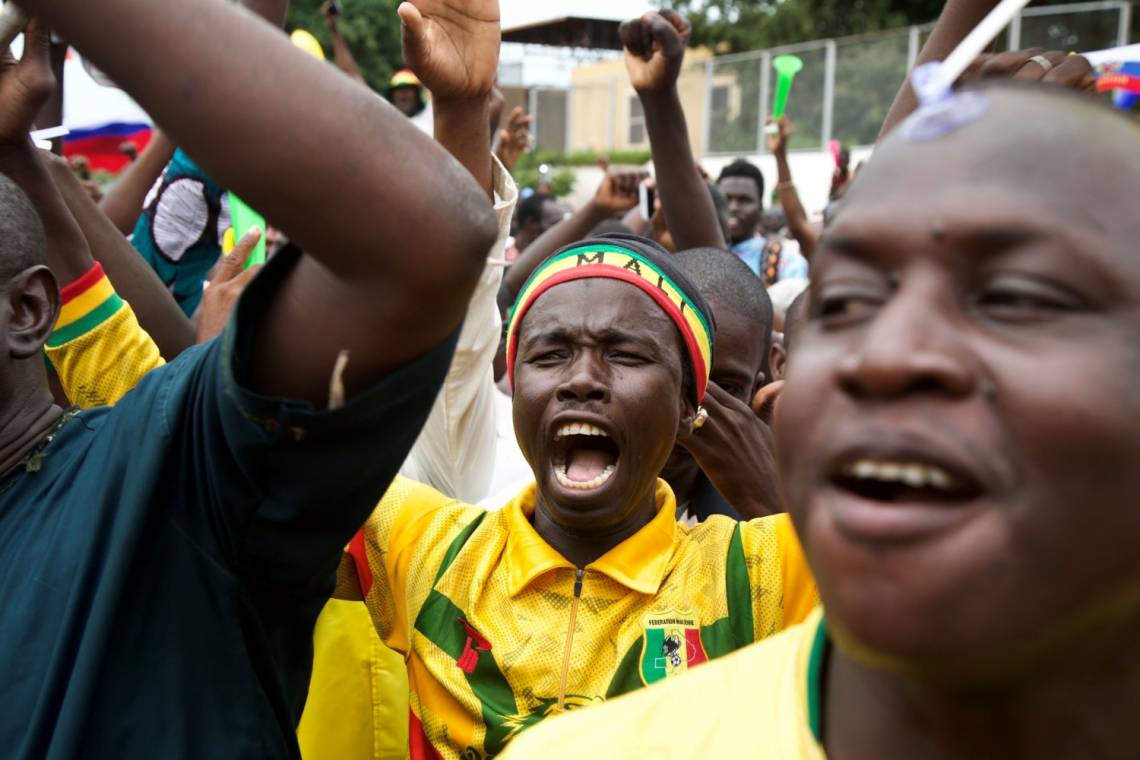After the coup of August 18, 2020 in Mali, the newsroom of Studio Tamani, the radio program of Fondation Hirondelle and URTEL in Mali, evaluates its action in covering these events. Martin Faye, Fondation Hirondelle's Representative in Mali, explains the challenges and measures taken to enable the editorial team to do its work on the spot, in this explosive context.
"Everyone agrees that as soon as a crisis breaks out, people turn to the media to find out exactly what is happening. And in this area, radio is the most listened-to here, because it is the most immediate, the fastest and also the most emotional medium. In any case, it is the media that people first turn to in a crisis.
Fondation Hirondelle is a Swiss organization created in 1995, which provides information to populations confronted with crises, to empower them in their daily lives and as citizens. Studio Tamani, created in 2013 by Fondation Hirondelle and URTEL (Union des radios et télévisions libres du Mali), broadcasts a daily radio program from Bamako, currently relayed by 85 partner radios in all regions of Mali. The editorial staff, composed solely of young Malian journalists, produces newspapers in 5 languages (Bambara, Tamashek, Sonrhaï, French, Poular), and also deals in magazines and debates with the problems of this country in crisis for nearly ten years.
The fire had been smouldering for several weeks and the coup d'état of August 19 was in a way the culmination of protest movements against the ruling power. From the outset, the leaders of the protest demanded the resignation of President Ibrahim Boubacar Keita.
At Fondation Hirondelle, the evaluation is part of the editorial chain. Was Studio Tamani neutral in its coverage of the coup? Simple observer of the facts reported? Was it concerned about the interest of the population? Verifying all information from all available and credible sources? Was it present on the ground despite the risks of violence?
It must be emphasized that for security reasons, non-essential personnel were asked to return home. Out of a staff of 45 people from all services, about ten journalists stayed to ensure a special edition in two languages, French and Bambara, from 5:00 pm to 7:00 pm. The experience of the last few weeks has shown that when there is a big demonstration, the Malian capital is cut in two. It is difficult, if not impossible, to go from one bank to the other of the Djoliba River which cuts the city in two. It is therefore necessary to anticipate this foreseeable blockage, but the journalists who return home must make themselves available and contribute to the production of remote elements at the editor's request. A lesson learned from the contingency measures taken against Covid-19. The entire newsroom is equipped to conduct a remote interview, write a text, edit a sound and send it for broadcast.
This device was very useful for the Special Morning of the following day, August 19. This is how the editorial staff managed to deal with the events that took place during the night, especially the declaration on television of President IBK announcing his resignation, and a few hours later the first proclamation of the officers, confirming the military coup d'état.
Studio Tamani's reactivity was not limited to radio programs. The 2.0 dimension was taken into account. The website was regularly updated. Posts were published on the Facebook page and tweets were posted on Studio Tamani's Twitter feed as news became available.
At the end of the day, on August 18th, an appreciation from a web user showed us that we had fulfilled our mission: "Studio Tamani, unbiased information in real time".
Martin Faye, Representative of Fondation Hirondelle in Mali
 ©ANNIE RISEMBERG / AFP
During a demonstration in support of the Malian army and the National Committee for the Salvation of the People (CNSP) in Bamako, Mali on August 21, 2020.
©ANNIE RISEMBERG / AFP
During a demonstration in support of the Malian army and the National Committee for the Salvation of the People (CNSP) in Bamako, Mali on August 21, 2020.